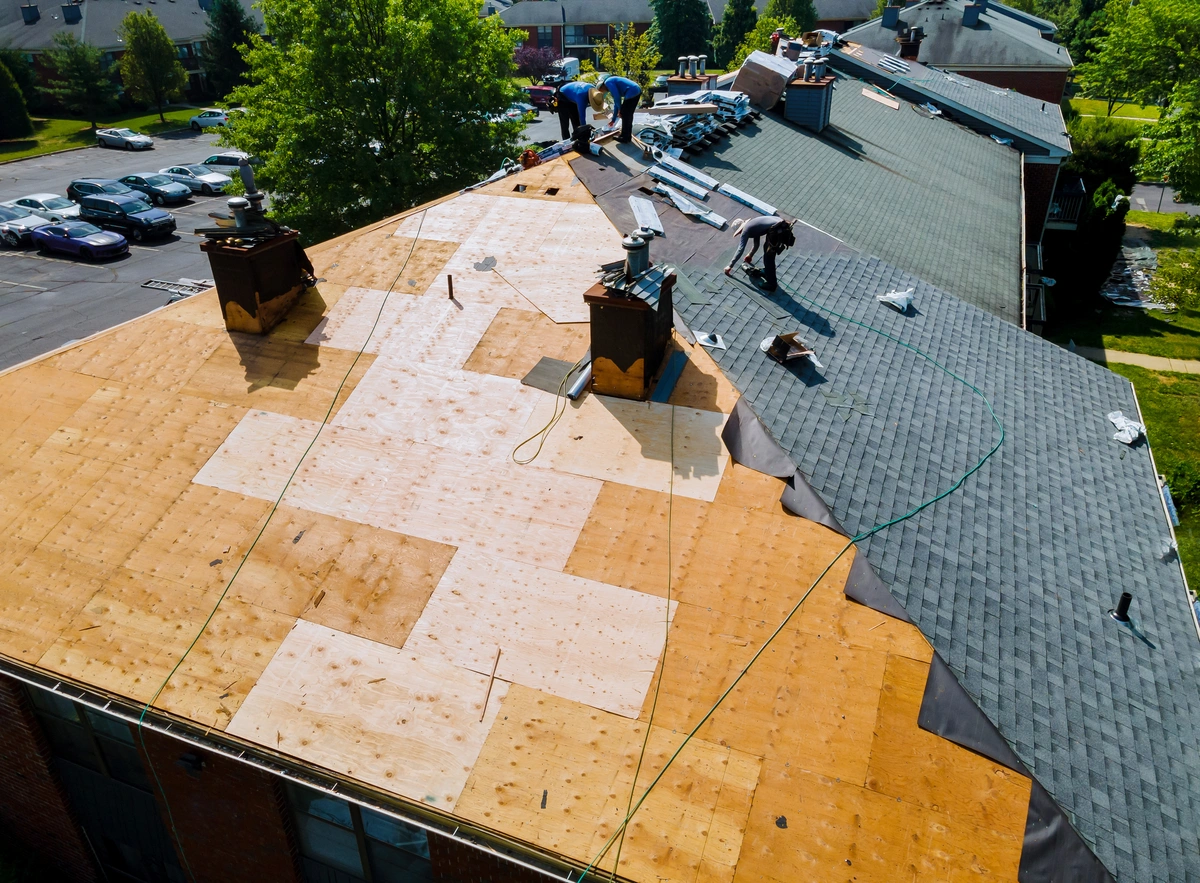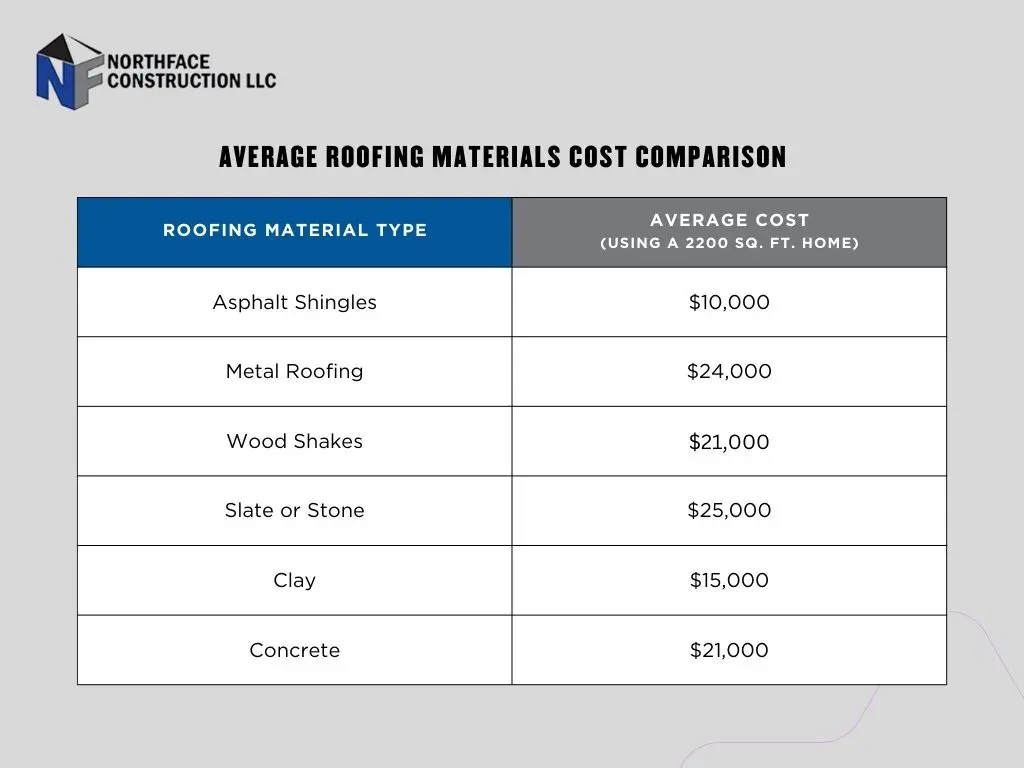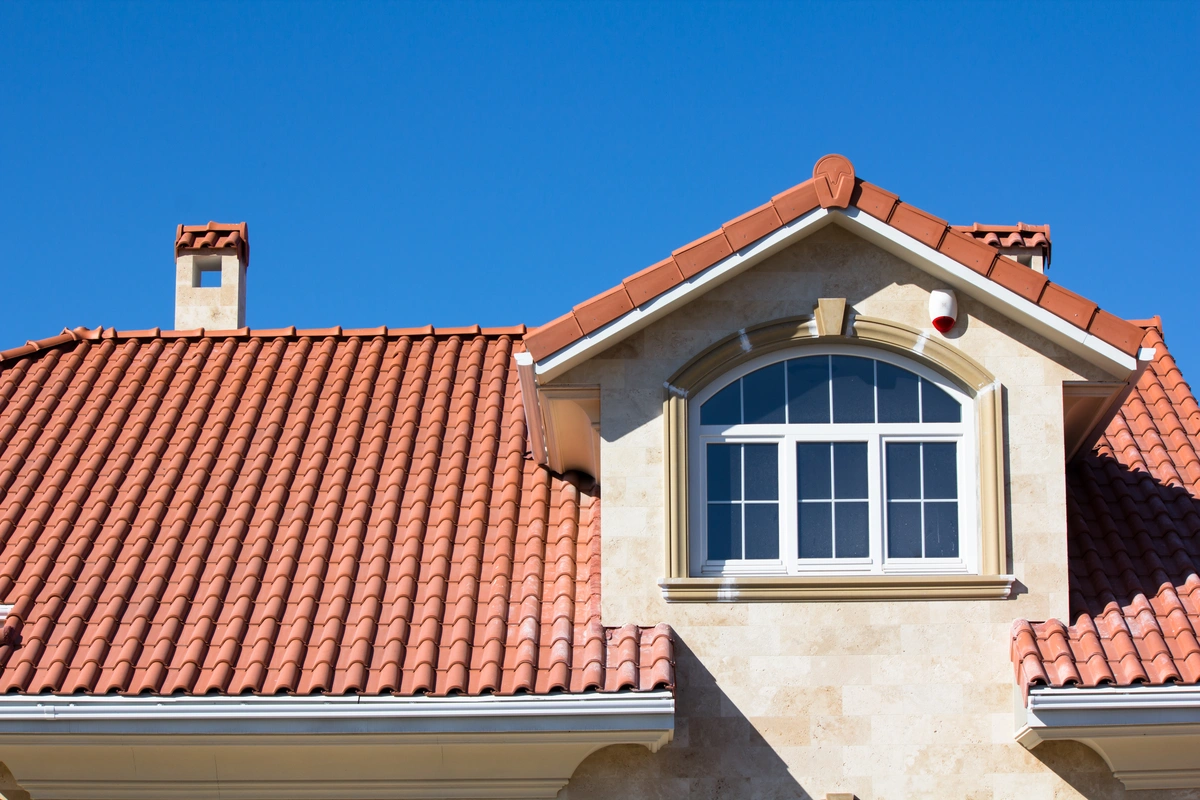Roof replacement.
It’s a phrase that likely brings up a wide range of feelings for the average homeowner. Stress, overwhelm, dread…any of those ringing a bell?
If they are, you are not alone. Many homeowners live in fear of the day that they will have to replace their roofs. However, we believe that half of this fear comes from not knowing what to expect! That’s why we are breaking down the entire roof replacement process for you from start to finish. We’ve got the answers if you’ve ever wondered:
- How much will a roof replacement cost?
- What materials can I choose from?
- When should I replace the roof?
Keep reading to become a roof replacement expert!
When Is It Time to Replace a Roof?

Let’s be honest: most of us aren’t roofing experts. This means that you might have no clue when it is time to replace your roof until a major problem occurs.
Ideally, you would get your roof replaced before your home suffers from water damage or other types of damage. But that requires knowing what to look for and when to call a professional.
Here are some of the signs you should keep your eyes open for.
- Age 👵🏼 – The age of your roof is one of the easiest ways to keep track of when a replacement is needed. Asphalt shingle roofs are by far the most common type of roof for residential properties. Typically, they only last for 15-20 years. After this, you likely need a roof replacement to keep your home functioning properly.
- Energy Efficiency 💡 – Are your heating and cooling bills becoming more expensive for no obvious reason? It may be that your roof is no longer effectively insulating your home.
- Leaks 💧 – While some roof leaks can be fixed with a simple roof repair, you might find that a roof replacement is in your future if leaks are happening with increasing frequency.
- Moss Growth 🌿 – It is not uncommon for older roofs to develop moss or algae growth over time. This can be a sign that your roof is holding onto moisture, which moss loves. If your roof is slowly turning green or developing black streaks, it may be time for a new roof.
- Missing Shingles 🔎 – It is easy for your roof to lose shingles over time. Replacing a shingle or two isn’t a very difficult task. However, if you are missing many shingles, it may be time to look into getting a new roof.
- Granule Loss ❌ – Have you noticed a gritty, black material in your gutter systems or on your driveway? Those are your shingle granules. Granule loss is normal over time but at a certain point, enough granule loss will make your roof more susceptible to UV damage and cracking.
What Are the Benefits of a Roof Replacement?
If the thought of a roof replacement gets you down, you should know that there are plenty of benefits associated with it, as well! Here are just a few things you can look forward to.
Resale Value
If you are thinking about selling your home in the near future, you will likely find that adding a new roof will greatly increase your home’s resale value. In fact, most homeowners experience around 60% ROI on their new roof.
Lower Bills
As we’ve previously mentioned, an older roof can come with some nasty side effects for your energy bills. However, adding a new roof could actually save you money by being more energy efficient.
Curb Appeal
A new roof doesn’t have to just be functional! It can also be beautiful. With a wide range of colors and styles available, your new roof can significantly boost your curb appeal.
How Much Does a Roof Replacement Cost?

For most homeowners, the biggest concern when it comes time to add a new roof is the overall cost. And with good reason! No matter how you slice it, a roof replacement is a significant investment. However, it is also very necessary. Being prepared for a significant investment is the best way to make it feel more feasible.
The cost of a roof replacement can vary wildly, depending on the materials used and the size of your home. That being said, the national average cost for a full roof replacement is between $9,000-$15,000.
Keep in mind that most reputable roofing companies will offer financing packages to help you pay off your roof, over time.
Different Types of Roofing Materials
When it comes to creating a new roof, the sky is the limit! There are more durable and reliable roofing materials on the market than ever. Here are seven of the most popular roofing material options.
1) Asphalt Shingles
In the world of roofing, asphalt shingles reign supreme. Asphalt shingles are well-loved for their affordability and reliability. By far the cheapest option on this list, they are also relatively easy to make repairs on.
2) Wood
Are you the sort of person who dreams of living in a far-away woodland cottage? Or maybe you are just looking for a more sustainable alternative to your old roof. If either of those sounds familiar, you might be the perfect candidate for a wood roof.
Wood roofs typically consist of either wood shakes or shingle, and are the perfect rustic touch to set your home apart! Keep in mind, though, that wood roofs do require more active maintenance than other types on this list.
3) Metal
Metal roofs are gaining in popularity for residential properties, and it is easy to see why. They are durable, energy-efficient, fire-resistant, and visually interesting. Metal roofs may be a more expensive choice of roofing material than a traditional asphalt shingle roof, but they are much more durable. In fact, the average metal roof can last over 50 years!
4) Slate
Slate roofing is one of the oldest types of roofing material in the world. It can last for over 100 years, making it the most durable option you can buy! That being said, slate comes with a few drawbacks. It requires a specialized skillset to be installed properly, meaning that you will need to find a professional roofing contractor who has experience working with it. It also is a heavy material that may not be suitable for every home.
5) Clay

You’ve likely seen clay tiles in Spanish-style homes that are usually reserved for Southern states. The truth, though, is that clay roofing tiles work well for almost any home. Not only are they beautiful, but they are durable and work for a variety of climates.
6) Concrete
Concrete is a lesser-used but very effective form of roofing material. Concrete tiles can be used to mimic the look of other materials, such as clay tiles. It is equally durable but can be slightly less expensive.
7) Synthetic
Modern technology has come a long way when it comes to synthetic tiles. These days, you can purchase synthetic tiles that mimic almost any type of roofing material. These synthetic options can be a more durable alternative to natural materials like wood.
How Long Does a Roof Replacement Take?
The timeline for your roof replacement will vary depending on many conditions, including:
- The schedule of your roofing contractor
- The size of your roof
- The materials you choose
- The weather
The average roof replacement can take anywhere from a single day to two weeks to complete once the crew arrives at your home. However, if you suspect you need a roof replacement, it is a good idea to reach out to your local roofing contractors early on, as certain times of the year can have months-long waitlists.
How Long Will My New Roof Last?
Roof replacements are a huge investment. It is only natural that you want a roof that is going to last for a long time!
Each roofing material will have a different lifespan, with most roof types lasting around 20 years before needing replacement. However, if you invest in a sturdy roofing material such as metal or slate, you might find that this is the last roof replacement you will ever need!
Can I DIY My Roof Replacement?
When faced with roof replacement costs, many homeowners are tempted to try and take on the project on their own. However, we would highly recommend that you avoid the DIY route. A roof replacement is a huge project. An incorrectly installed roof could lead to huge problems down the road and could actually cost you money in the long run.
What To Look For in a Roofing Contractor
If this is your first time hiring a roofing contractor, you may not know where to start. Here are some things to look for before hiring a pro for your roof:
- License – Any reputable roofing contractor will be both licensed and insured and should be willing to show you documentation at your request.
- Experience – While all roofers will know how to install asphalt shingles, if you are choosing a more unusual roofing material, such as metal or slate, you’ll want to find a contractor who has experience with that particular type of roofing.
- Communication – When you interview potential contractors, we recommend that you talk with their team about their communication plans. Ask who your main point of contact will be to avoid confusion in the future.
Talk to a Pro Roofer!
Ready to get started on your roof replacement project? You need a professional roofing contractor that you can trust! At Northface Construction, we are ready to help! Our team of roofing experts is ready and waiting to answer any questions you might have. Contact us today to get a free quote for your roof replacement.


